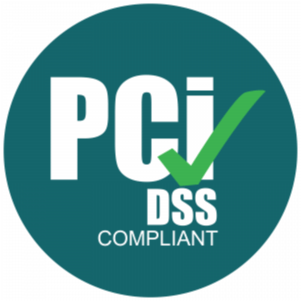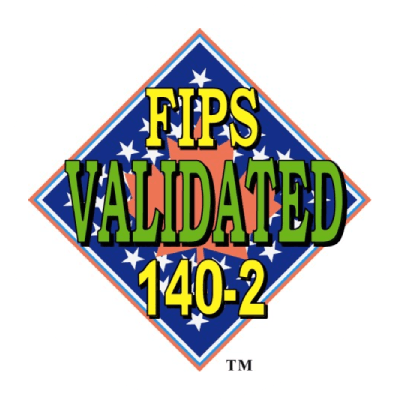Posted by Anne-Marie Avalon
March 21, 2024
What is Certificate Lifecycle Management (CLM)?
Certificate Lifecycle Management (CLM) serves as a critical cybersecurity process that manages the discovery, issuance, storage, deployment, revocation, and renewal of digital certificates. These processes ensure secure communications between devices and servers on the internet. CLM keeps digital certificates, predominantly in the X.509 format, current and correctly configured throughout their lifecycle, allowing machines and sometimes humans to authenticate each other and securely exchange information over the internet. CLM also avoid outages due to the expiration of certificates. This safeguard helps prevent security breaches and maintain operational integrity.
The Importance of CLM in Cybersecurity
Digital certificates, acting as digital IDs, authenticate and secure digital interactions. Efficiently managing these certificates through CLM is essential for:
- Keeping certificates current and correctly configured
- Preventing unauthorized access and data breaches
- Facilitating trusted digital communications and transactions
Please see: CISOs Under Fire: The New Legal Frontline in Cybersecurity
The Critical Role of Certificate Rotation in CLM
The rotation of certificates, an often overlooked yet crucial aspect of CLM, involves periodically replacing certificates before they expire or become compromised. Regular updates to certificates play a vital role in reinforcing security measures, preventing unauthorized access, and ensuring continuous trust in digital communications.
Please see: Rotate or Breach, Security Insights from Cloudflare
Key Components of Certificate Lifecycle Management
CLM encompasses several critical processes, each vital for the security and reliability of digital certificates:
- Automated Renewal Process: Streamlines the renewal of certificates with automatic CSR and Key generation, ensuring uninterrupted operations.
- Secured Storage: Centralized repository for all certificates, providing visibility for new certificates.
- Notification of Certificate Expiration: Automated alerts for impending certificate expirations.
- Certificate Provisioning: Facilitates certificate deployment to Linux, Windows, and Kubernetes, with automatic replacement after renewal.
- Private CA and PKI as a Service: Enables the creation of a private Certificate Authority and offers PKI-as-a-service for enhanced security management.
- Public CA Integration: Integrates with major Public Certificate Authorities like GlobalSign, ZeroSSL and GoDaddy,
- Certificate Discovery: Automatically finds existing certificates.
The Akeyless Platform delivers all of the components above. Upcoming enhancements are being added for ACME Standard integration, improving the versatility of certificate management and the integration with Let’s Encrypt, DigiCert and Sectigo.
Google’s 90-Day TLS Certificate Mandate
Google’s proposal to reduce the validity period for all public SSL/TLS certificates to 90 days from 398 days will impact a broad range of businesses using SSL/TLS certificates to secure their websites, not just those using Google Cloud. This policy change requires adaptations across websites and certificate protocols, affecting certificate authorities and businesses across various domains. It’s part of a move to improve security procedures and promote automation, with the implementation likely to occur in 2024.
FAQ: Certificate Lifecycle Management
What is the certificate management lifecycle?
The certificate management lifecycle encompasses the processes involved in managing digital certificates, including their issuance, renewal, revocation, and expiration, ensuring secure communication over the internet.
What is DCM?
DCM, or Digital Certificate Management, refers to the tools and processes involved in the management of digital certificates, ensuring they are up-to-date and securely stored.
What are the key stages in the lifecycle of a certificate?
The key stages include issuance (creating and assigning the certificate), deployment (implementing the certificate for use), monitoring (tracking the certificate’s status and validity), renewal (updating the certificate before it expires), and revocation (removing the certificate’s validity before its expiration date).
What is the purpose of a certificate management system?
A certificate management system automates and oversees the various aspects of managing digital certificates. Its purpose is to ensure that certificates are current, valid, and not compromised, supporting secure and trusted communications and transactions over the internet.
CLM Simplified with Akeyless SaaS Secrets Management
The Akeyless Platform is a sophisticated security solution, adeptly tackling the demands of Certificate Lifecycle Management (CLM). Through its Vaultless® Secrets Management, the Akeyless Platform oversees the entire lifecycle of digital certificates, ensuring their meticulous management. This encompasses the automation of key processes such as discovery, rotation, and revocation of certificates, significantly boosting both security and operational efficiency.
Enhanced Security
The option to create a private CA and the use of PKI as a service can significantly enhance an organization’s security posture. This allows for greater control over the issuance and management of certificates.
Automated Renewal
The automated renewal process, coupled with notifications for certificate expiration, helps in proactively managing certificates. This feature is crucial in avoiding application outages due to expired certificates, a common issue in manual management systems
Centralized Storage, Monitoring and Alerts
Having a centralized repository for all certificates, both private and public, with observability into the health status of these certificates, is crucial for effective management, which is essential for security audits and compliance. Automated notifications ensure that all certificates are valid, secure and up-to-date, avoiding outages and hacks.
Flexibility and Ease of Use
The system’s flexibility in terms of various notification methods and ease of provisioning certificates to different endpoints (like Linux, Windows, Kubernetes) can significantly reduce the workload on IT teams, making the process more efficient and less error-prone.
Experience Akeyless in Action
In today’s digital-first world, managing digital certificates with precision and ease is crucial. Akeyless innovative approach to CLM offers a powerful, user-friendly platform that meets the evolving needs of modern enterprises.
Take the first step now and discover the power of the Akeyless Platform’s CLM solution on your enterprise’s security and operational efficiency with a custom demo or start for free today!












